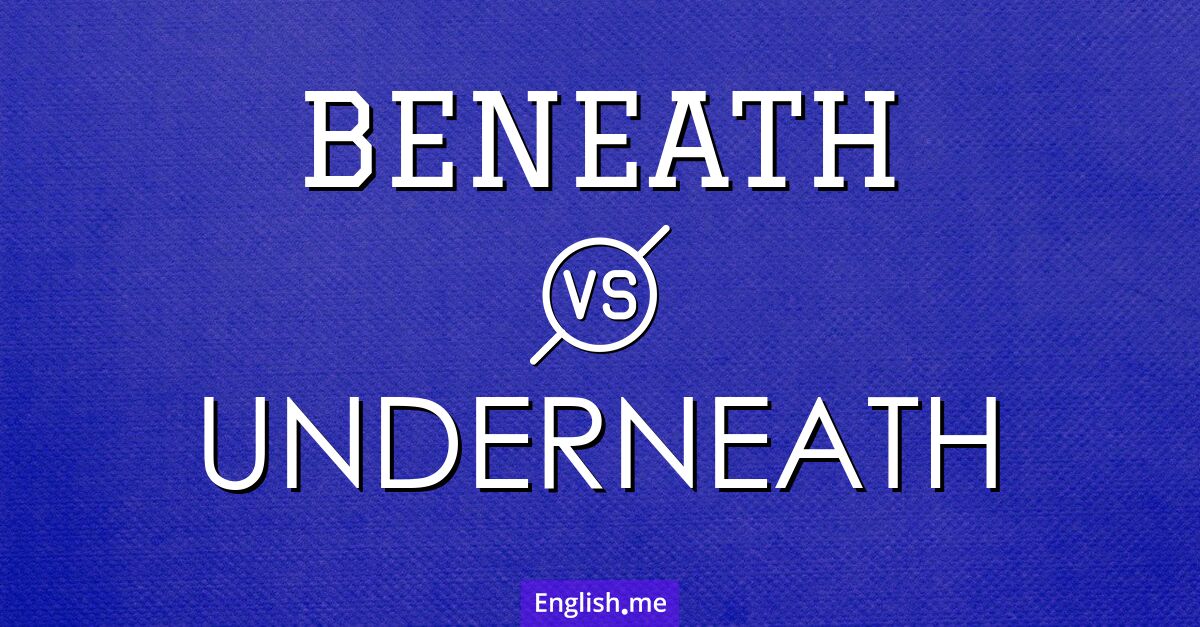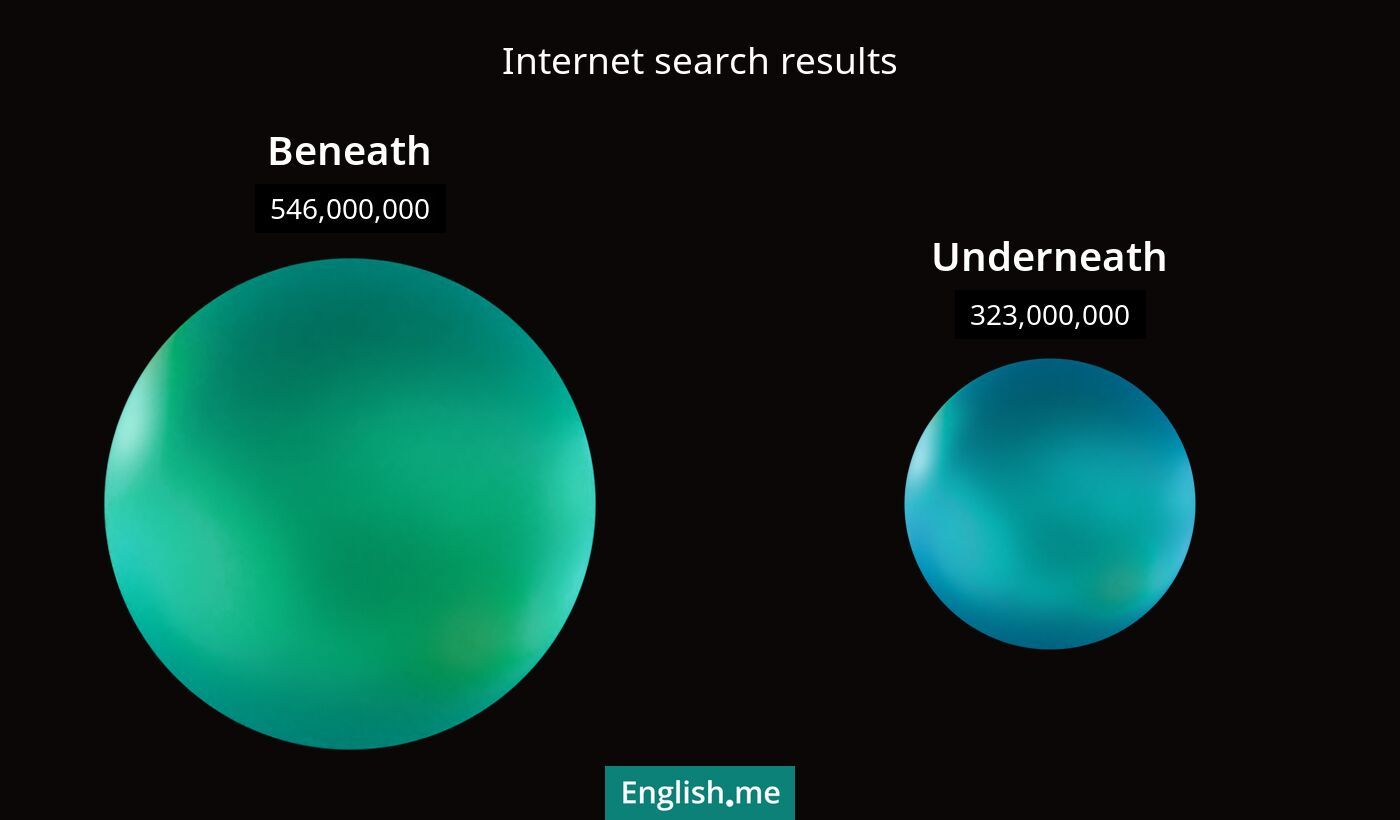"Beneath" vs. "underneath": what's the difference?
Reviewed and edited by  Anwar Kareem 20/02/2025, 08:54
Anwar Kareem 20/02/2025, 08:54
English.me team member

 What is similar?
What is similar?
Both "beneath" and "underneath" are prepositions and adverbs used to indicate that something is at a lower position relative to something else.
 What is different?
What is different?
"Underneath" often implies being directly under something and may suggest that the object is covered or hidden by whatever is above it. "Beneath" can be used in both physical and figurative contexts, sometimes conveying a sense of inferiority or being unworthy. For example, "beneath one's dignity" uses "beneath" in a figurative sense, whereas "underneath" is primarily used in physical contexts.
 Which one is more common?
Which one is more common?

 Examples of usage
Examples of usage
Beneath- The submarine disappeared beneath the waves.
- She slipped a note beneath his door.
- He considered the task beneath him.
- The cat hid underneath the sofa.
- She wore a thermal shirt underneath her sweater.
- They found a hidden compartment underneath the floorboards.

 English
English español
español française
française italiano
italiano deutsche
deutsche 日本語
日本語 polski
polski česky
česky svenska
svenska Türkçe
Türkçe Nederlands
Nederlands